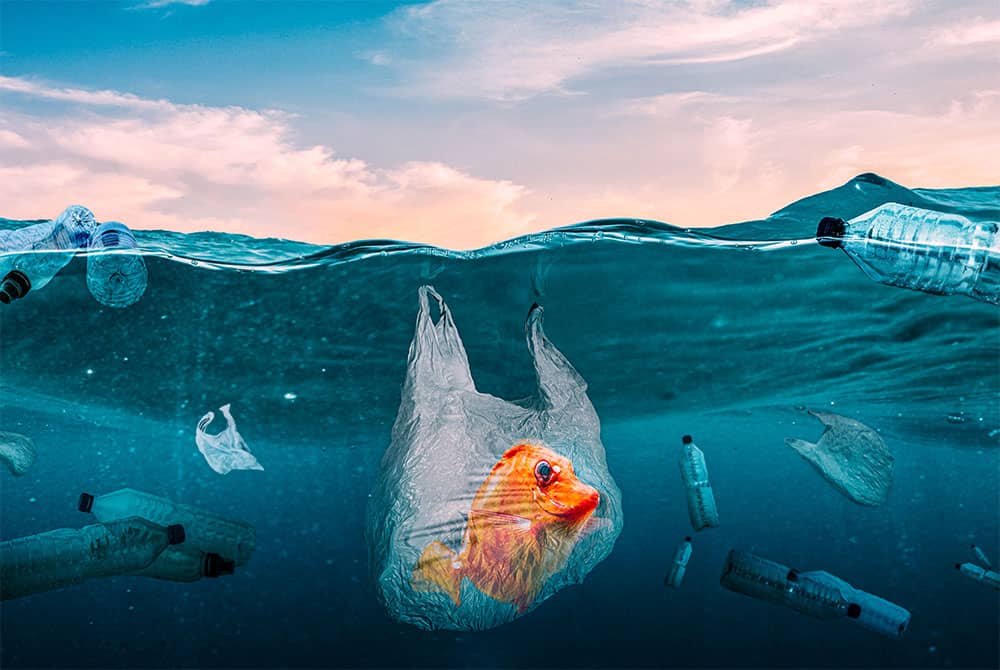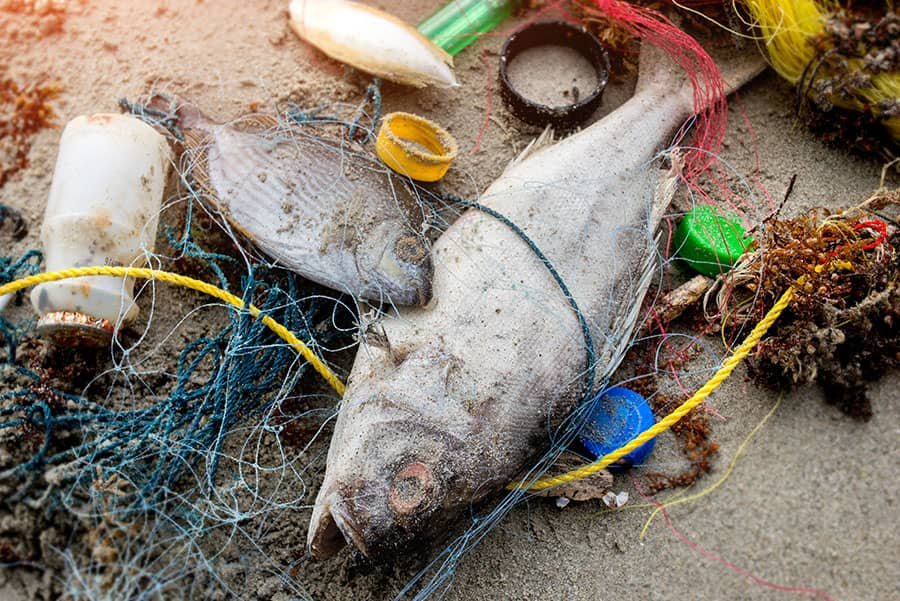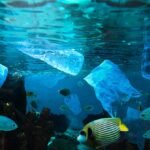
Plastic pollution affects marine life in many ways and is considered a great environmental issue. Different plastics spread throughout the ocean as about 20% of the trash comes from ships and platforms that are offshore.
In the North Pacific Ocean is located the so-called Great Pacific Garbage Patch and it is larger than the state of Texas. Plastic are killing of animals every year including more than 100,000 sea turtles and birds a year from ingestion and entanglement. Over 800 species are affected and the number just in the last 5 years has increased by 23%.
What Are the Main Causes of Ocean Pollution?
The toxins in the plastic affect the ocean and along with other chemical are ingested by animals in the ocean and at the end affects human health as well. Most of the waste from land at some point reaches the oceans.
- Littering
- Sewage
- Agricultural runoff
- Ocean mining
- Air pollutants
- Maritime transportation
- Oil spills
- Toxic chemicals
Plastic pollution and especially microplastic from plastic when beak down is the number one killer to marine life. According to scientists over 15 million tons of plastic end up in the ocean each year and cause death to turtles, dolphins, whales, seals, fish, corals seabirds, all forms of marine wildlife and birds. Over 236,000 tons are microplastics – tiny pieces of broken-down plastic smaller than 5 mm in length.
How Plastic Pollution Affects Marine Life?

Here are some facts you may not know about how plastic pollution affects marine life.
- Foam cups and tin cans can take up to 50 years to break down while plastic takes 500 years.
- Every year, over one million seabirds are killed by marine litter.
- Over 46,000 pieces of plastic litter are floating on every square mile of the world’s oceans and plastic is the most common object found at sea or ocean, produced by humankind.
- Marine life can get stuck in it while swimming.
- Sea turtles and other marine life can’t tell the difference and will often eat plastic bags or eat microplastic.
- There are three garbage patches in the Pacific, Indian and Atlantic oceans.
- Disruption to the cycle of coral reefs.
- The most common items found in coastal cleanups around the world are all single-use plastics.
- More than 80% of the negative effects on animals associated with ocean trash are caused by plastics.
- Ocean pollution is more common in more than 2,000 feet deep waters, with the most common offenders being metal cans, plastic bags, glass bottles, fishing equipment, shoes, and tires.
- There are about 500 dead zones in the ocean, with a total size similar size to the United Kingdom.
- Negatively impacted by pollution is over one-third of the Atlantic ocean that shellfish live in.
- Many fish that humans consume have ingested plastic microfibers.
- Plastic pieces are found in more than 90% of all seabirds’ stomachs.
- According to a recent study, in 100% of turtles are found in plastic pollution and in 59% of whales.
- In the oceans, there are 705,000 tons of discarded fishing nets.
Tips to Use Less Plastic
Did you know that most of the plastic waste generated in the US is not recycling? Here are ways you can help reduce plastic pollution and decrease your plastic waste:
- Stop using plastic straws, you can purchase a reusable stainless steel or glass straw.
- Buy products in boxes instead of bottles if possible. Cardboard is more easily recycled than plastic.
- Use a reusable bottle for water or a mug for your coffee.
- Use a reusable shopping bag.
- Use glass containers for storing leftovers.
- Use cloth diapers instead of disposable diapers for your baby
- Make your own cleaning products that will be less toxic or buy sustainable ones.
- Use reusable containers, wraps, and bags for your lunch.
- Use a razor with replaceable blades instead of a disposable razor.
- Don’t use plasticware at home or at restaurants for take-out food.



